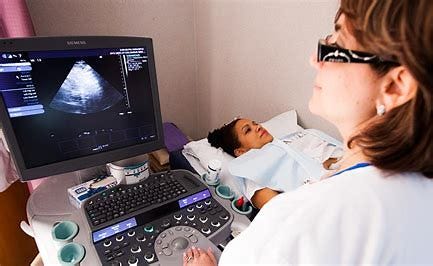Ultrasound: Career As a Diagnostic Medical Sonographer
A diagnostic medical sonographer makes use of imaging equipment and soundwaves known as ultrasound to create images of various parts of the body. They are further provided with training to acquire and analyze sonographic images. Moreover, doctors use these images to diagnose and treat many medical conditions.

Ultrasound is a non-invasive method to visualize internal organs. In addition, it is the initial imaging test that is used once a disease is detected. Diagnostic medical sonographers conduct and interpret initial imaging tests. Lastly, these tests assist in narrowing down the diagnosis of a patient and provide them immediate care.
The duties of a diagnostic medical sonographer include using imaging equipment and assessing pictures to ensure they are clear and useful for diagnosis. They must be able to distinguish between normal and abnormal imaging data. They also notify doctors of pressing issues and provide a summary of the findings to other medical professionals.
In addition, they educate patients throughout the ultrasound examination and get them ready for operations. In addition, they have the responsibility of examining the medical history of each patient, documenting imaging findings in patient files, and arranging care with different hospital or clinic departments.
Alongside physicians, nurses, and patients of all ages — from newborns to the elderly — diagnostic medical sonographers work. Radiation technologists and magnetic resonance imaging technicians, who perform and analyze X-rays and MRI scans, have similar functions in diagnostic imaging.
To Become a Diagnostic Medical Sonographer
Being meticulous and having an interest in anatomy make you an ideal candidate for a career as a diagnostic medical sonographer. Also, you’ll need to pay close attention to imaging methods and have an acute sense of even the smallest variations in imaging outcomes. Additionally essential are interpersonal skills. People who wish to interact closely with people every day and who want to acquire highly technical skills might consider a career in this field.
Education Requirements
To become a diagnostic medical sonographer, one can follow a variety of educational paths. With education in anatomy and the sciences, one can get a bachelor’s or associate’s degree. Completing a diagnostic medical sonography certificate program is an additional option. Certificate programs are instructional ultrasound courses that combine clinical experiences and instruction in diagnostic medical sonography. Online ultrasound courses are also a good choice.
There is an increasing demand to diagnose medical disorders with accessible imaging technology. Over the following ten years, growth in this field is anticipated.
I hope this information was useful to you. I hope your career in ultrasound goes well.

Comments
Post a Comment